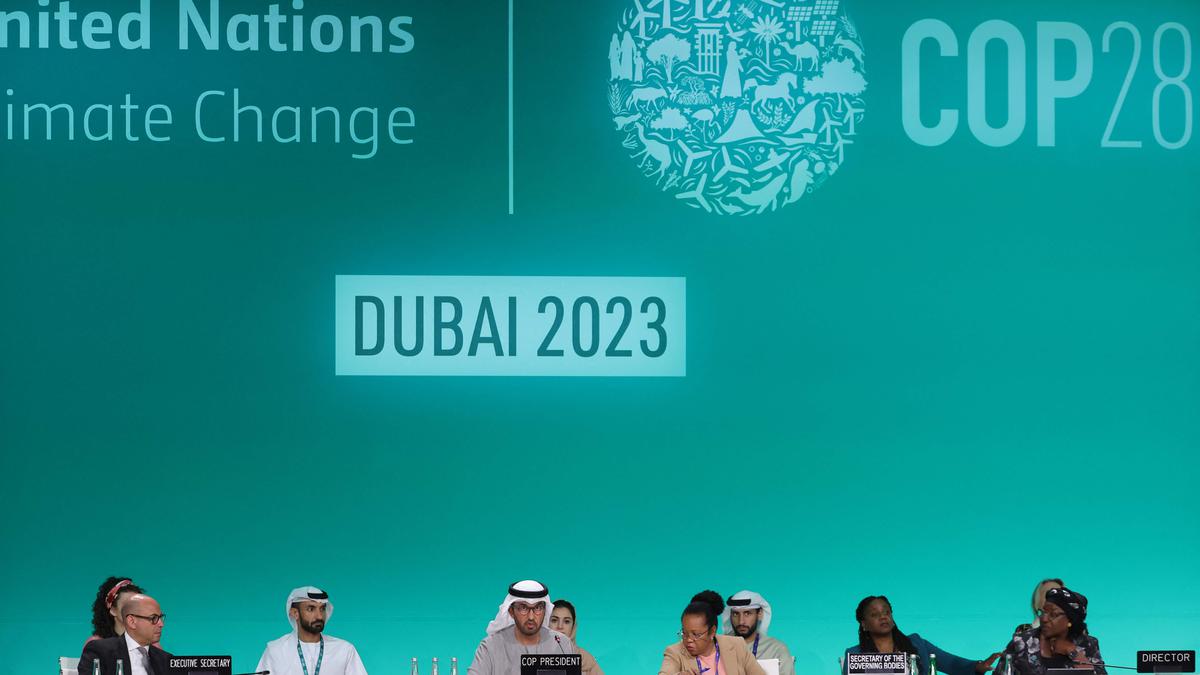
Dubai climate consensus signals the beginning of the end for the fossil-fuel era
The Hindu
Nations take step towards phasing out fossil fuels, agree to net zero emissions by 2050. Compromise reached between developed and developing countries on contributions to climate crisis.
Nations took a small but decisive step towards ridding the world of fossil fuels, after negotiators in Dubai on Wednesday adopted a resolution, called the Dubai Consensus.
The standout clause in the 196 paragraphs of this 21-page text is the one that “calls on Parties [to be] ...Transitioning away from fossil fuels in energy systems, in a just, orderly and equitable manner, accelerating action in this critical decade, to achieve net zero by 2050 in keeping with the science.” However, this language of “transitioning” has been diluted from earlier drafts that had called for an actual “phase-out” of all fossil fuels.
Creating a path to net zero greenhouse gas emissions by 2050 is humanity’s best shot at keeping global temperatures from rising beyond 1.5 degrees C by the end of the century, according to scientific assessments by the Intergovernmental Panel on Climate Change (IPCC). This implies cutting emissions to 43% of 2019 levels by 2030 and 60% by 2035, an onerous ask given that just seven years remain for the first target, while emissions keep rising, year on year.
The consensus text reflects a compromise between developed and developing countries on what the world should do to stem greenhouse gas emissions while also ensuring that countries contribute proportionally, on the basis of their historic responsibility for the climate crisis. These climate talks, known as the Conference of Parties (COP), are annual affairs, but move forward incrementally because the UN rules say that an agreement can result only if all 198 signatories agree on every line in the text.
On the one hand, delegates from vulnerable nations such as Samoa and the Marshall Islands expressed their unhappiness that the agreement does not go far enough to end fossil fuels, putting the future of their countries at risk. At the other end, several countries — including Saudi Arabia, Egypt, Colombia, and Senegal — said that while the agreement was a step forward for a fossil-free future, there was very little movement to ensure that the funds promised by developed countries in previous COPs actually made their way to developing countries.
Reflecting this range of opinions, COP 28, scheduled to end on Tuesday, went into overtime, with wrangling over the final agreement continuing until the early hours of Wednesday. The final text was released on Wednesday morning. Though it was cleared by noon, proceedings only drew to a close six hours later, with several countries using the interim period to make statements expressing their happiness, or unhappiness with aspects of the text, even while accepting the deal. These grievances are expected to feed into future deliberations.
“The world needed to find a new way. By following our North Star [of keeping the 1.5 degrees C target in mind], we have found that path,” said COP 28 president Sultan Al Jaber during his closing speech. “We have worked very hard to secure a better future for our people and our planet. We should be proud of our historic achievement.”













